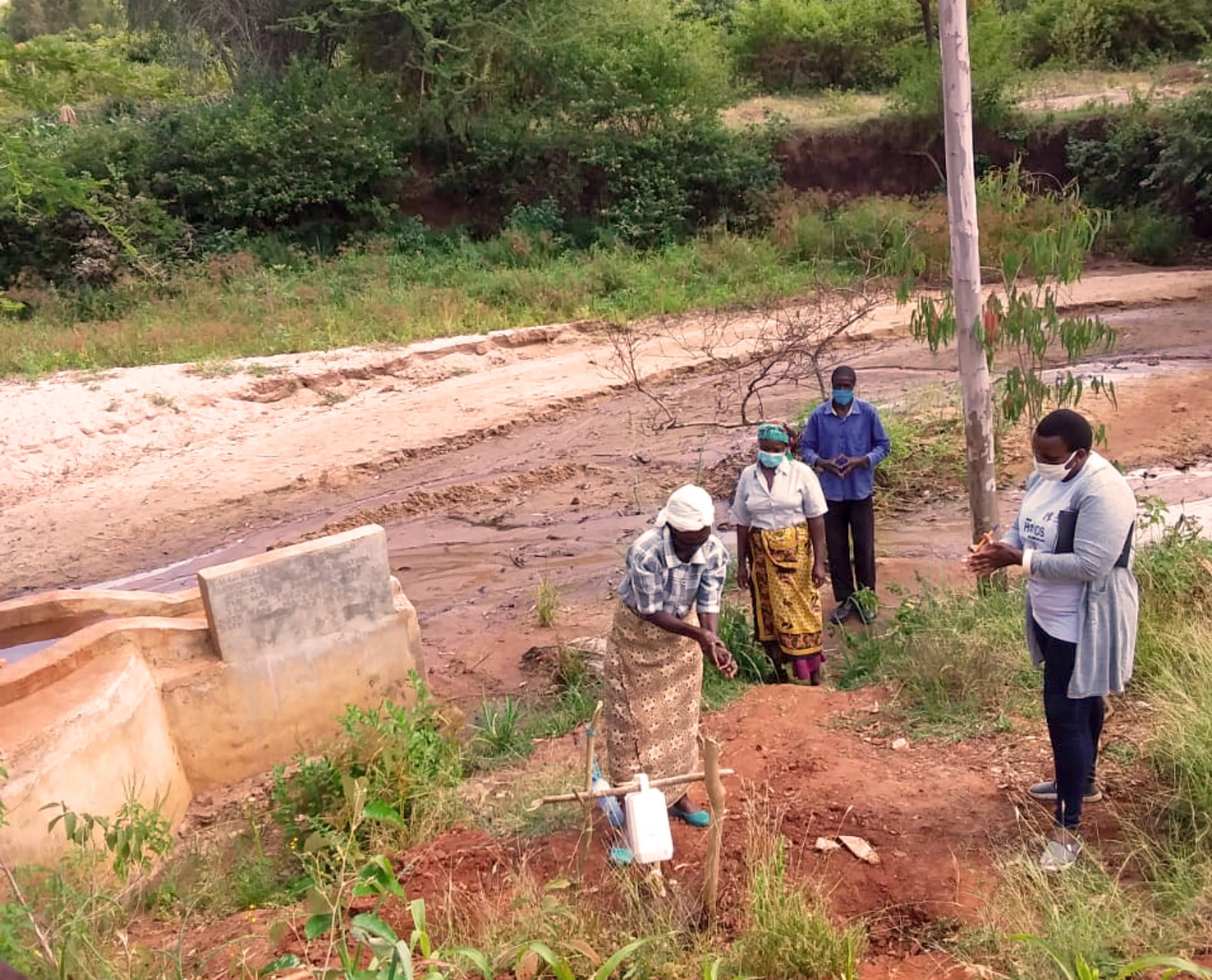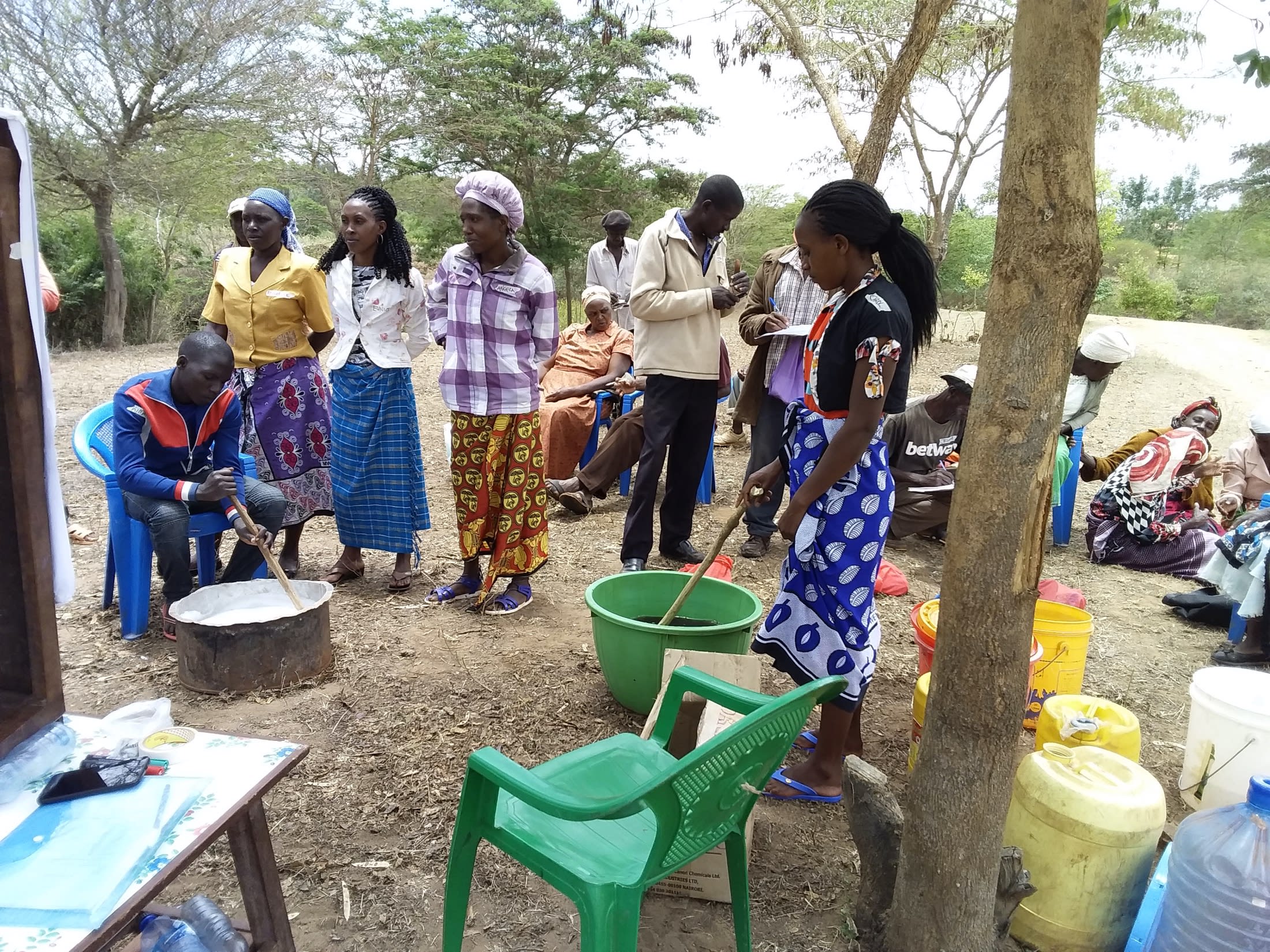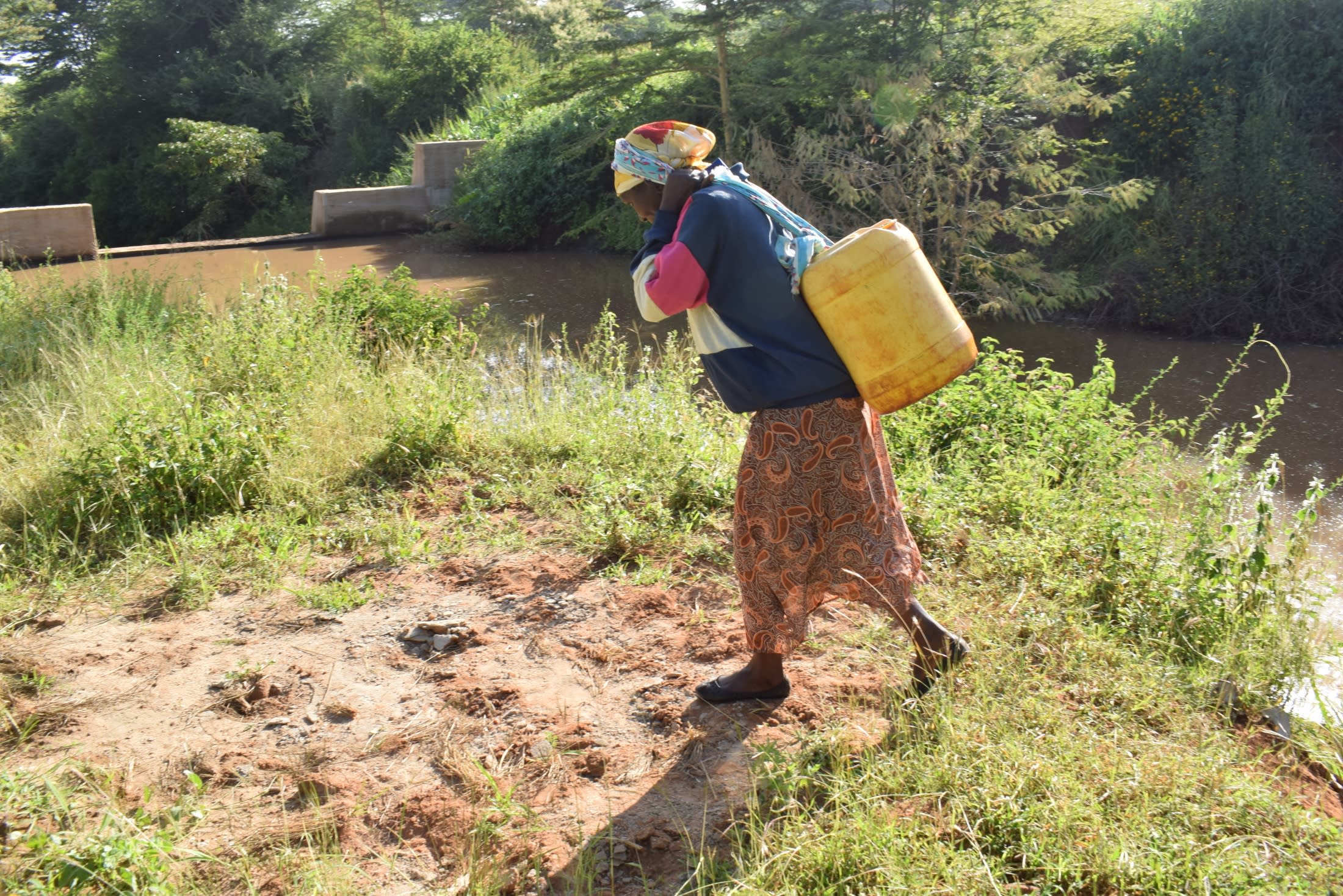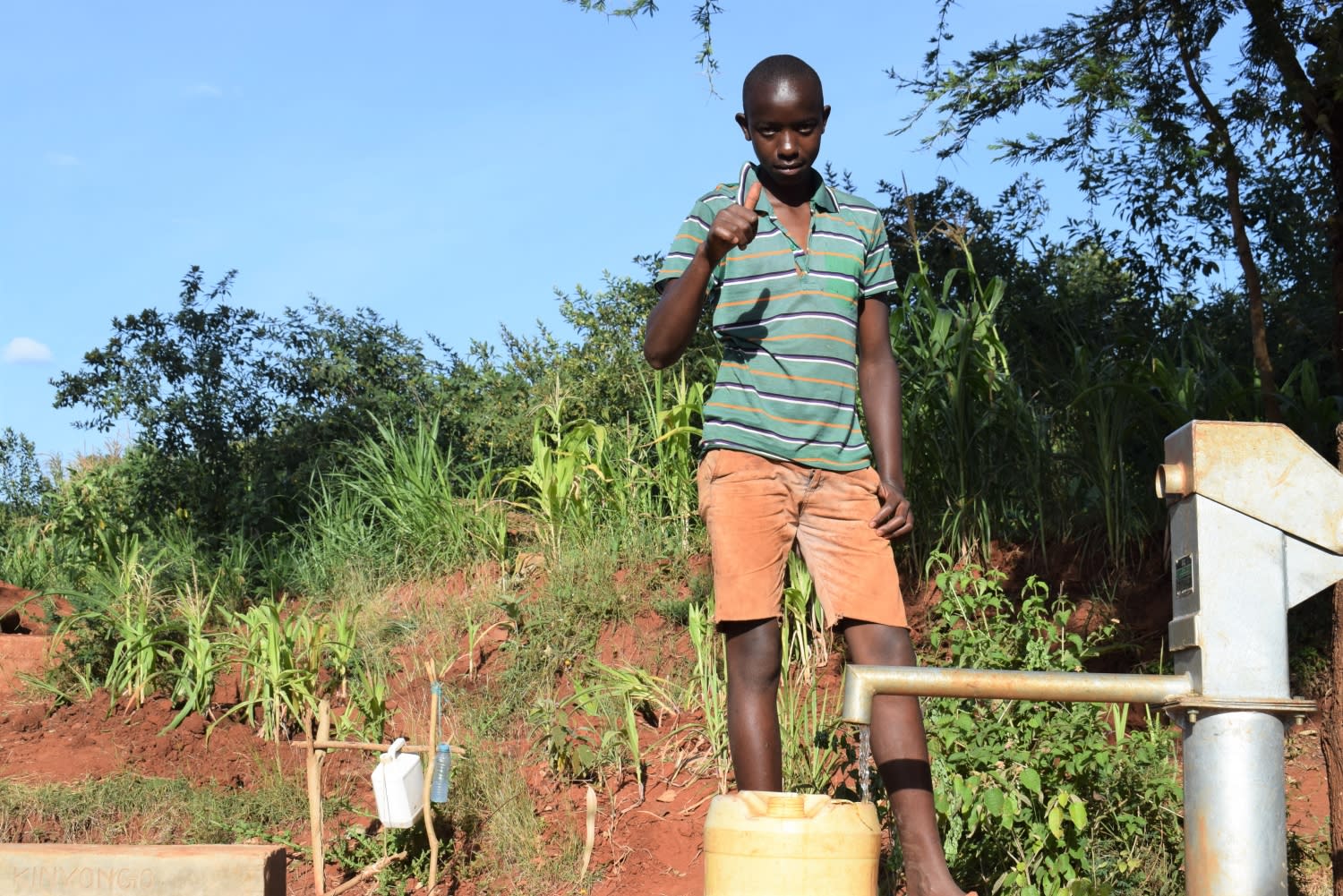This is our second year partnering with the Ngwatanio ya Kinyongo Self-Help Group in Utuneni, Kenya. Last year, we constructed a sand dam and hand-dug well that are already providing water to some of the 4,553 people living here.
But a single water point can only regularly support about 500 people. That is why we work with self-help groups for five years to build more water points and ensure that every person has access to safe, reliable water.
Universal access to water by all community members remains a challenge in this community with some members coming from far places to reach the already implemented water projects. The community members exhibit high levels of commitment to ensure easy water access for the entire population through the implementation of more water projects evenly distributed so as to reach every corner of the village.
"We come from a community which is not privileged enough to have an adequate water supply all around the year. Working on water projects for the last one year has brought more hope as the fruits of our work are more visible," said Esther Muindi.
The community is found on the slopes of Mbooni Hills in Makueni County. Community members live in a peaceful, rural setting with significant tree coverage made up of exotic trees species. A majority of community members live in decent houses made of bricks and covered with iron sheets, while others live in mud-walled houses covered with iron sheets or grass.
On an average day for the community members, a woman and her children wake up at 6 am, go to fetch water, and then prepare breakfast for the family as the children prepare for school. The man, on the other hand, wakes up to go to the farm to get Napier grass for the livestock and also to run any needed errands. Errands that are most common are farming, taking farm products to the market, and feeding the livestock among others.
During the day, the woman does household chores such as washing the family’s clothes, tidying up the house, washing utensils, and preparing lunch as well as supper for the family. They also have community meetings such as fellowships and self-help group meetings which they attend during the day.
What we can do:
Hand-Dug Well
This particular hand-dug well is being built adjacent to this group’s ongoing sand dam project (click here to see), which will supply clean drinking water once it rains. We have supplied the group with the tools needed for excavation. With the guidance of our artisans and mechanics, the excavated well will be cased, sealed with a well pad, and then finished with a new AfriDev pump.
Excavation takes a month or more on average, depending on the nature of the rock beneath. Construction of the well lining and installation of the pump takes 12 days maximum. The well will be lined with a concrete wall including perforations so that once it rains, water will filter in from the sand dam.
This well will be located in Utuneni Village, and will bring clean water closer to families having to walk long distances for their water.
Training
Community members have participated in training sessions that teach about important hygiene practices and daily habits to establish in their homes. Members of this community are recording improvements on their adherence to hygiene and sanitation standards, a good number of community members have constructed hand washing stations, clotheslines and dish racks. Improvements are highly needed on having garbage pits and regular cleaning of latrines.
"The state of hygiene and sanitation in our community can be described as average, community members are improving slowly after the training on hygiene and sanitation in the last one which taught us on the important aspects of maintaining high levels of cleanliness," said Esther Muindi.
Upcoming training sessions will strengthen weaknesses and continue encouraging each family that making the extra effort to clean homes, bathe, wash hands, and treat water is well worth it!

 Protected Dug Well
Protected Dug Well
 Rehabilitation Project
Rehabilitation Project


































